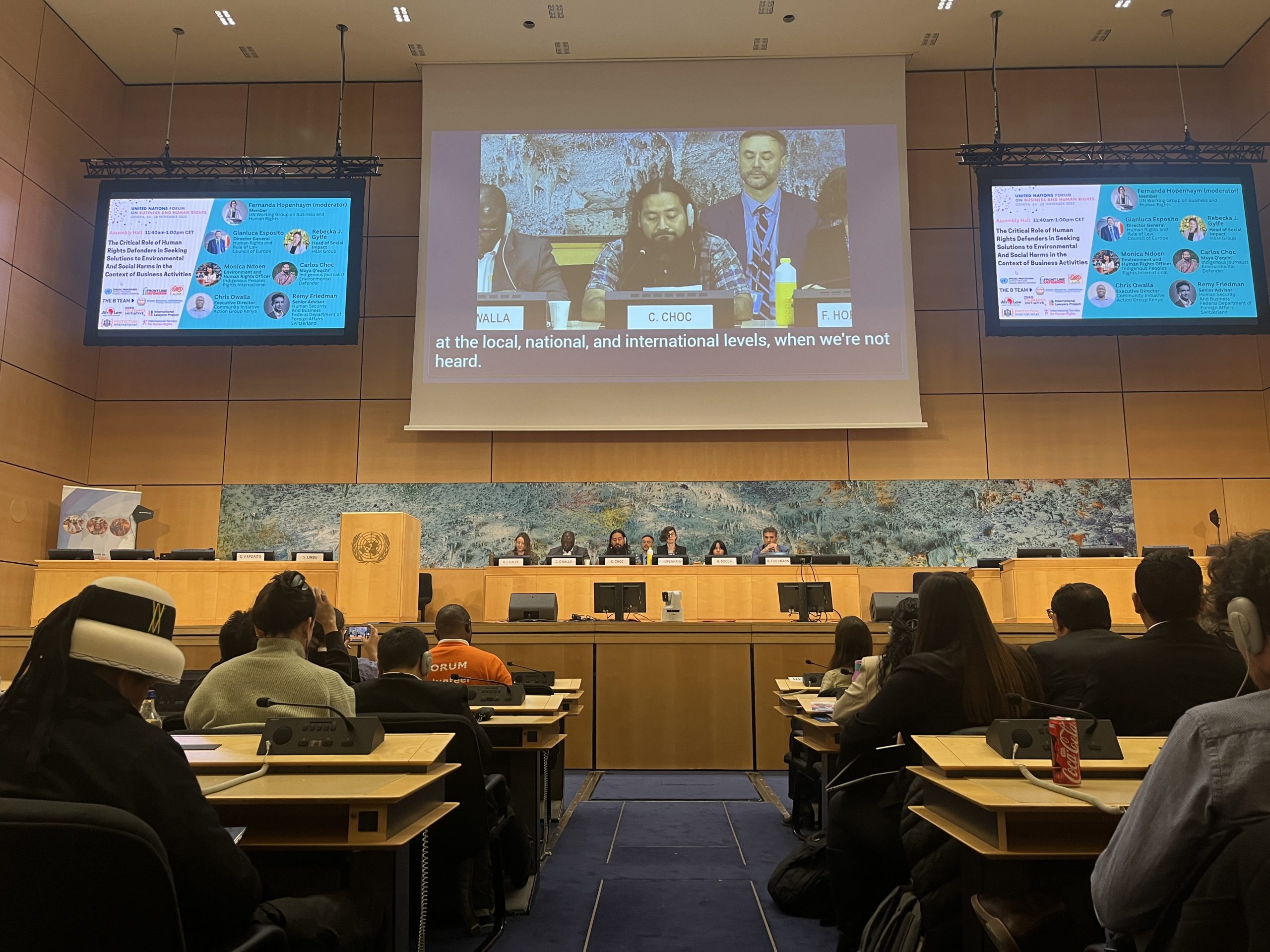By Owen Larter, UK Government Affairs Manager, Legal and Corporate Affairs, Microsoft and Nicolas Patrick, Pro Bono Partner and Head of Responsible Business, DLA Piper
Human rights have sometimes enjoyed a complex relationship with big business. Increasingly however, many global multi-national corporations have committed to conducting their business in a way that respects human rights. For many the motivations are purely ethical (for instance many businesses have signed the UN Global Compact which includes a commitment to promote human rights). Others are driven by a mix of business and moral considerations – for instance, the many corporates who now recruit direct from the third sector need to demonstrate a strong human rights policy to readily attract such talent, in return for the wealth of expertise, insight, networks and even credibility such individuals can bring.
There is however more to be done, with human rights abuses still sadly occurring and many NGOs and other human rights defenders finding themselves targeted and persecuted in many countries. Addressing such abuses in a meaningful way is obviously a significant concern for civil society across the globe, as well as for any business that wants to conduct its operations in a responsible way.
The value of a strong human rights policy
DLA Piper and Microsoft’s support for human rights is both well understood and deeply ingrained into our corporate culture and practices. For instance, at DLA Piper, many of the lawyers and consultants in the pro bono and responsible business teams come from the third sector and many in Microsoft’s Corporate Citizenship teams across the globe bring extensive experience of the NGO sector. Both DLA Piper and Microsoft are proactive in respecting human rights and both have adopted human rights policies, (Microsoft’s Global Human Rights Statement), with Microsoft also having created the Technology and Human Rights Resource Centre, designed to advance public understanding of the human rights impact of ICT.
As a result DLA Piper and Microsoft benefit from close, collaborative relationships with hundreds of NGOs; a strong connection to civil society that makes our businesses stronger. Our people gain an appreciation of some of the most complex social challenges of our time, as well as gaining valuable insight into the ways in which business activity can have a positive or negative impact on human rights. This in turn strengthens our business because it improves the quality of the products and services we provide to our customers as it gives us a broader perspective and allows us to identify social issues that may be relevant to our customers.
Furthermore, our collective experience certainly supports the belief that businesses thrive in communities that are rights respecting – not least as those territories tend to also display a strong respect for the rule of law. What is more, human rights defenders are crucial in fomenting rights respecting communities. It is therefore in our own self-interest as global businesses to support programmes which strengthen respect for the rule of law across the globe. This for instance, comprises one of the core aspects of Microsoft’s Human Rights Statement.
Constructing a working framework to protect human rights defenders
As a result of this mutual and long-standing support for human rights, DLA Piper and Microsoft believe there are several ways the business sector and civil society can provide mutual support to each other to minimise the risk of persecution of human rights defenders.
- NGOs working in high risk environments need to establish networks of support within the business sector, particularly large multi-national corporations which have publicly stated a commitment to human rights. Invisible networks of influential friends and supporters in the business community can be invaluable when things go wrong. Human rights defenders should therefore partner with and work constructively with the business sector and foster partnerships and collaboration.
- Multi-national corporations ought to implement training for local managers. There is a particular need to ensure that local staff are trained to be respectful of the role of civil society, especially when communicating with regulators.
- Businesses should always aim to behave in a way that respects the rule of law . Where in doubt, this case needs to be made repeatedly and more clearly; for instance, in the same way that many in the business community have been proactive in articulating their support for gay rights.
- In certain circumstances businesses may wish to speak out in defence of NGOs and other civil society groups facing persecution. Having a prominent and well-developed policy on both human rights and external relations is helpful for guiding a company’s behaviour.
- Some of this personal risk to business or reputation can be alleviated by having strong trade associations, with their own systems and processes for responding on behalf of all members. By speaking with a united voice, the risks of unilateral action can be reduced or avoided entirely. The progress made by the technology industry via the Electronic Industry Citizenship Coalition around supply chain transparency is an example of how progress can be made in this way.
Moving forward together
While the above measures can constitute a balanced and proactive stance on supporting NGOs and basic human rights, we cannot be complacent. Rights respecting businesses need to be aware of the limitations being placed on NGOs around the world, and start to seriously assess how this expands the role and responsibility of the business community.
Fortunately, we are already starting to see trade associations becoming more active in this area. At the UN Forum on Business and Human Rights in Geneva in 2014 a group of US trade associations representing several business sectors argued that better legislative protections were needed to protect workers’ rights in developing countries, supported by monitoring and enforcement. They argued that without such reforms the costs of ensuring compliance with human rights norms was being passed on to businesses that were not best placed to guarantee compliance.
Meanwhile in the UK, Microsoft has been deeply involved in advocating that more nations should implement the UN’s ‘Guiding Principles on Business and Human Rights’ – which the UK was first to develop a National Action Programme to implement, however only a handful of nations have followed suit. Microsoft also recently addressed a high-level event hosted by DLA Piper in London entitled ‘Business and the protection of Human Rights Defenders’ – where more industry support was invited for organisations like the Global Network Initiative, which focusses on freedom of expression and Internet privacy or the Electronic Industry Citizenship Coalition, promoting high labour, ethical and environmental standards in its supply chain.
Only through continued engagement between the business community, NGOs and human rights defenders can we continue to progress this important agenda.
In the weeks and days leading up to the UN Forum on Business and Human Rights, ISHR will publish a series of articles by leading experts including human rights defenders, UN representatives, diplomats, businesses and international NGOs. Each article will include an analysis of the important role of human rights defenders and will be compiled in a special edition of ISHR’s Human Rights Monitor, to be launched in English, French and Spanish on November 9. The views expressed in the pieces are personal and do not necessarily represent the position of ISHR.




